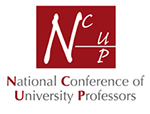Brescia May 2020 and beyond

Meeting Friday 8 May 2020
Background:
The 16th Innovations in Education Colloquium had been planned to be held in Brescia during May 2020 with delegates and presenters arriving from around the world.
With the widespread restraints arising from Covid-19, alternative arrangements have now been made for a virtual meeting via Zoom on
Friday 8 May 2020 – starting at 9.00am BST. 10.00 am CEST. Duration: 3 hours.
This included:
- A series of short presentations by students from Schools of Dentistry from UK, Zagreb and Brescia Universities in respect of their dissertations and research.
- A research proposal regarding students’ dissertation experiences in terms of their learning processes.
- Time for discussion around student presentations and reflections on future work at Brescia 2021
Programme:
9.00am BST. 10.00am CEST
Welcoming introduction by Prof Corrado Paganelli of Brescia University
Special presentation by Professor Hrvoje Brkic:
The stress and discomfort of studying at the School of Dental Medicine University of Zagreb during the 1991 war and during the 2020 pandemic.
Presentations by Students from Zagreb University
Chaired by Dr. Barry Quinn
| Influence of lost preclinical exercises on clinical work. | Taja Urbancic-Rak |
| Online classes as a substitute for clinical work. | Marta Adam |
| The impact of the current global pandemic on clinical work and exam prepping. | Tina Tomic |
| The impact of the pandemic crisis on clinical probation and employment prospects. | Tin Crnic |
10.30 BST 11.30 CEST
Break for coffee with a musical interlude and Images from ‘My Happy Place’ Exhibition.
Presentations by UK Students – winners of NCUP bursary
Chaired by Dr. Jenny Wright
| The Prevalence of Psychological Stress in Undergraduate Students at a UK Dental School: A Study Assessing Need for Stress Management Provision | Dr. Oonagh McSwiney. |
| Mental Health and Wellbeing of College Students: Improving help seeking and reducing symptoms | Dr. Margaret McLafferty |
| Dental Hygiene and Therapy students experiences of psychological wellbeing in their undergraduate education. | Dr. Marina Harris |
| Dementia and the Dentist | Dr. Parnyan Ashtari |
Joint Presentation by students from Brescia University
| Report of research work undertaken by student cohort | Marta Elisabetta Dossi Alessia Baldini |
Questions and Discussions led by John Burgess
John also outlined proposals for all dissertation students to contribute to research into the learning processes applied during the preparation of dissertations.
It is hoped that such research will lead to the publication of a combined paper to be presented to the 2021 Brescia Colloquiuum.
Details of the research proposals are set out in Schedule A (below).
The meeting concluded with a Round up and final words from Professor Corrado Paganelli
Schedule A
8 April 2020
‘Learning from the process of learning’
These notes seek to explore whether and, if so, how, ‘dissertation year students’ might collectively produce a paper reflecting:
- their ‘learning process’ experiences;
- how those learning experiences might help them in continuing to learn during their careers; and,
- what they may have learned about themselves
during the course of preparing their dissertations.
Accordingly, the attached Schedule A2 set out a series of questions around the topic.
The questions elicit thoughts and perceptions about the wider aspects of the process by which the students have learned and thereby facilitate the preparation by students of:
- commonly based/generic submissions; and possibly,
- an over-arching review and report for the Brescia 2021 Colloquiuum.
The questions intentionally veer towards wider aspects and are (with the exception of Q1) framed to exclude reference to the substantive aspects of individual dissertations.
It is suggested that
- Students address each question but not submit any ‘answers’ as such;
- Based upon the foregoing and their further thoughts and ideas, each student prepares a generic paper reflecting ‘what they have learned from the way they have learned’.
In making their submissions, it is hoped that students will address at least a reasonable number of the aspects raised by the Schedule A2 questions.
Confidentiality: It is recognised that:
- each question is by its nature, personal to the responder;
- some questions may be regarded as particularly personal and not appropriate for reflection in any submission.
Subject to discussion, it is suggested that:
- Students might submit their responses for circulation to both other contributors and designated University seniors;
- A core group of students is then chosen to review and prepare a report to reflect the range of responses along with the identification of both common and uncommon themes. Other analyses and commentaries could, of course, be considered and applied.
It is hoped that this research will provide:
- a valuable reflection of the collective learning of the year-group involved; and,
- enable them to feed back to each other and the wider world, aspects of their learning which may not have been disclosed by other means.

Hotel Bellerive, Salo
